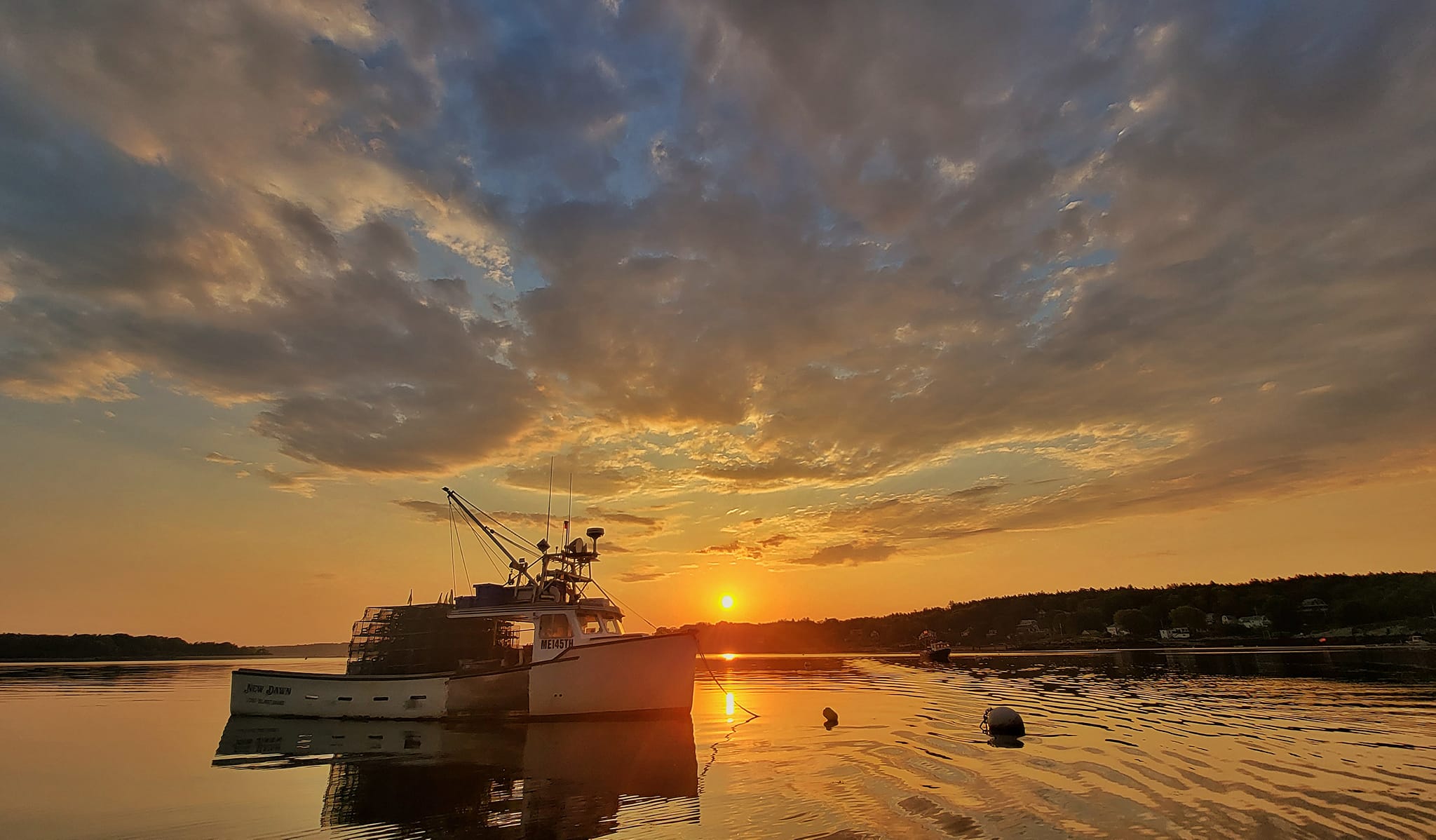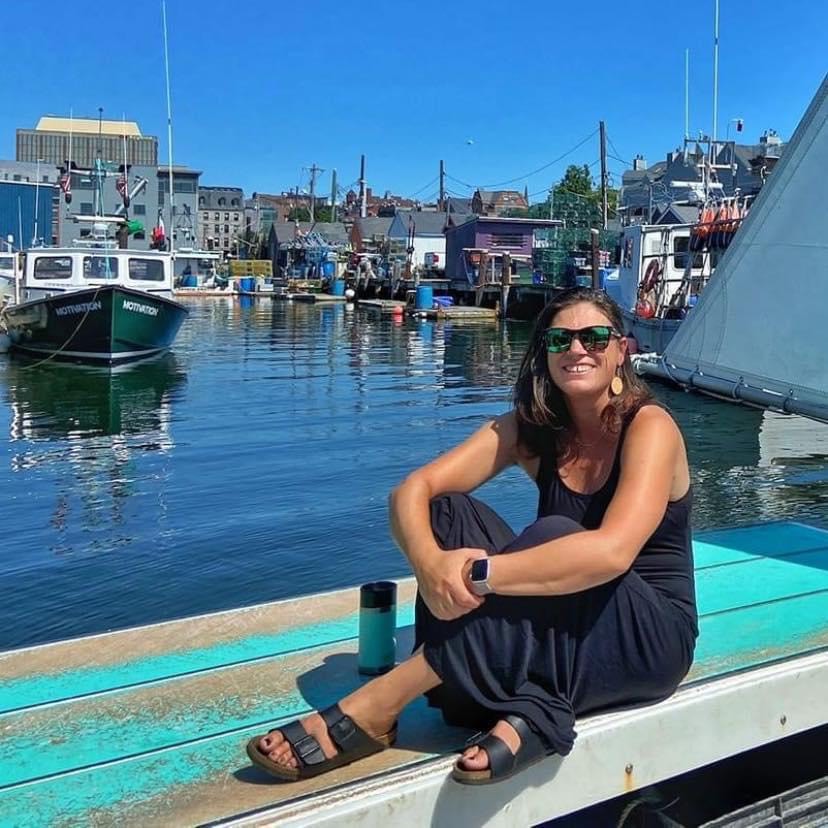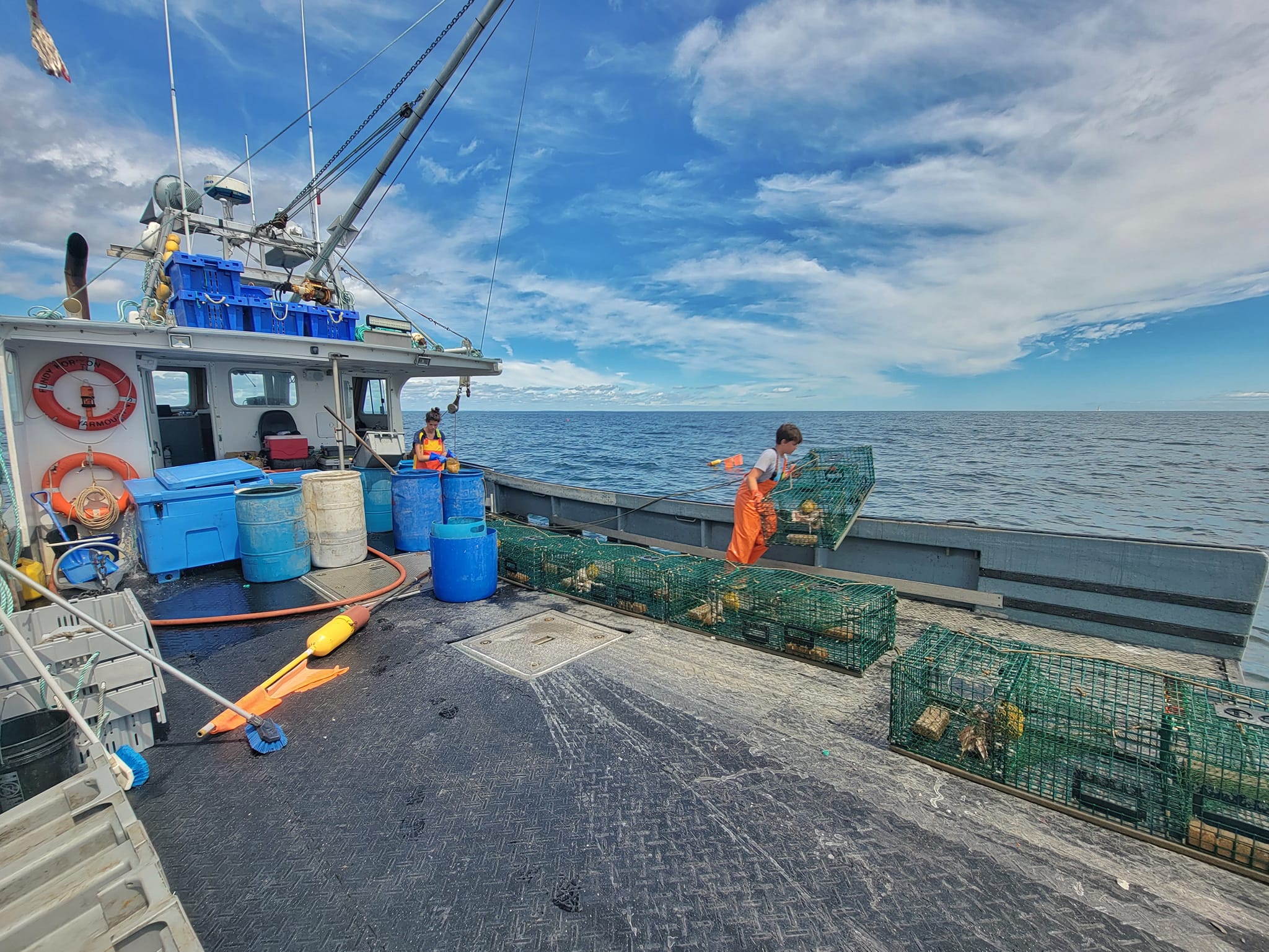I recently edited a college essay for the son of some dear friends of mine, an 18-year-old named William. He wrote about fishing with an older lobsterman on Long Island, Maine, who has become a little bit of a legend in the small community where we live.
Tommy Marr, who lobstered in his youth, joined the Navy, and then went from ferry boat captain to captaining a fuel barge, tug boats, and finally back to lobstering, is still going strong deep into his eighties. Since the 80s, Tommy has taught many a boy to fish on this island.
My husband was once one of those boys, so I instantly connected to the words William had written. The essay spoke of how Tommy taught him more than how to catch lobster, more than how to tie a knot, or how to get through the early mornings. Tommy taught him to care for an entire industry, and how to be a respectful human. It was touching and authentic, and I could tell he meant every word.
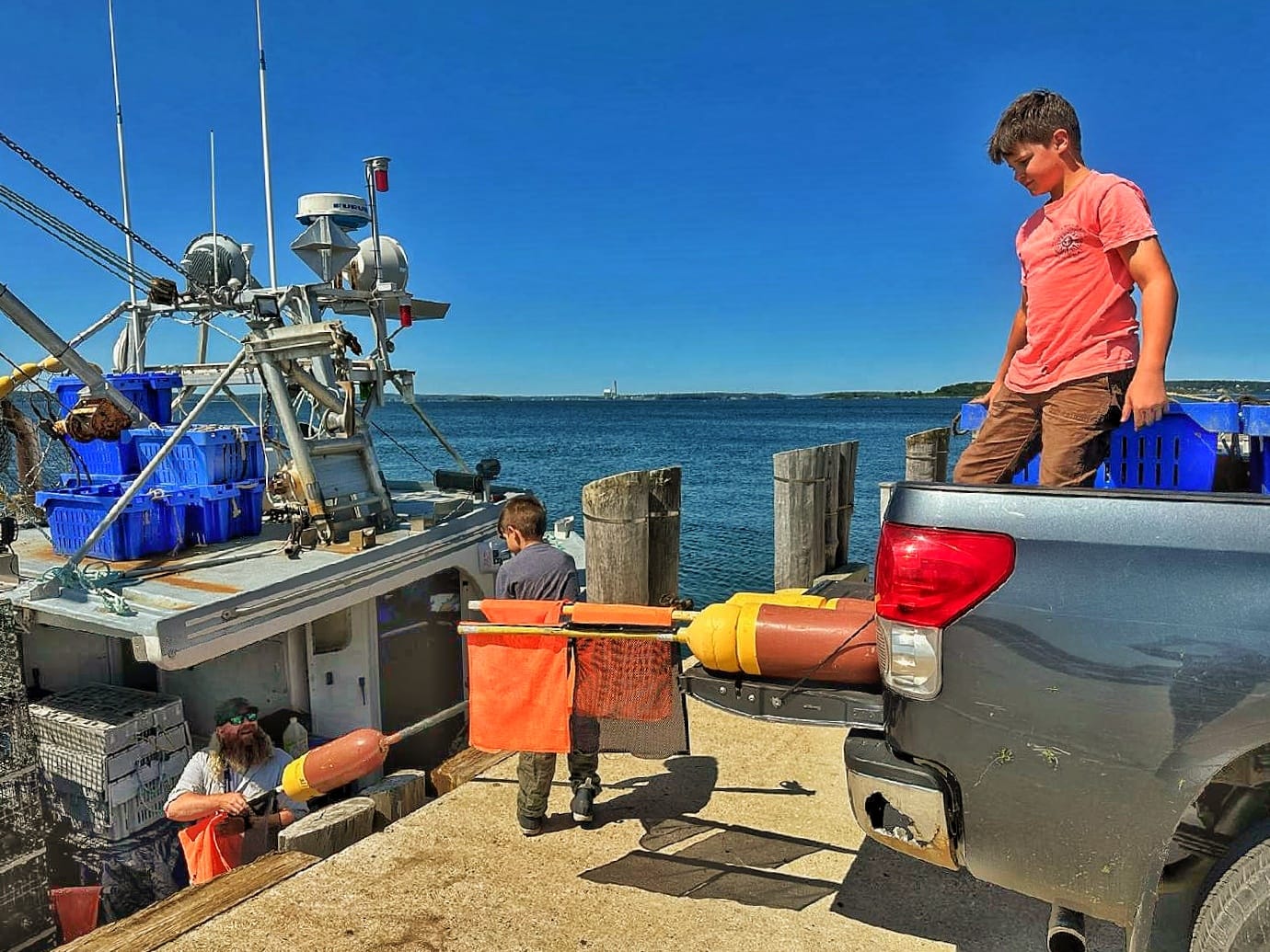
When you’re a part of a fishing family, it’s easy to see the strands of knowledge that pass from father, to son, to grandson. We see our daughters become fierce and independent, and our sons become driven and strong. We see the way our children beg to go to work, whether it’s with an uncle, a grandfather, or their mom—they just want to be on the water. Something in the blood of a fisherman doesn’t often get diluted over time, and sometimes it even gets richer, the desire gets stronger.
I’ve seen our daughter and our oldest son go from finicky teenagers to hardworking and driven fishermen, unscathed by the 3am wake-up calls. I’ve heard them laugh as they walk with their dad to the wharf in the darkness, and even when the catch is down, they’re willing to be his second and third hands. Even our youngest son, who’s not old enough to make the journey off-shore, wears his oilskins for fun and won’t miss a chance to help his dad change the oil on the boat.
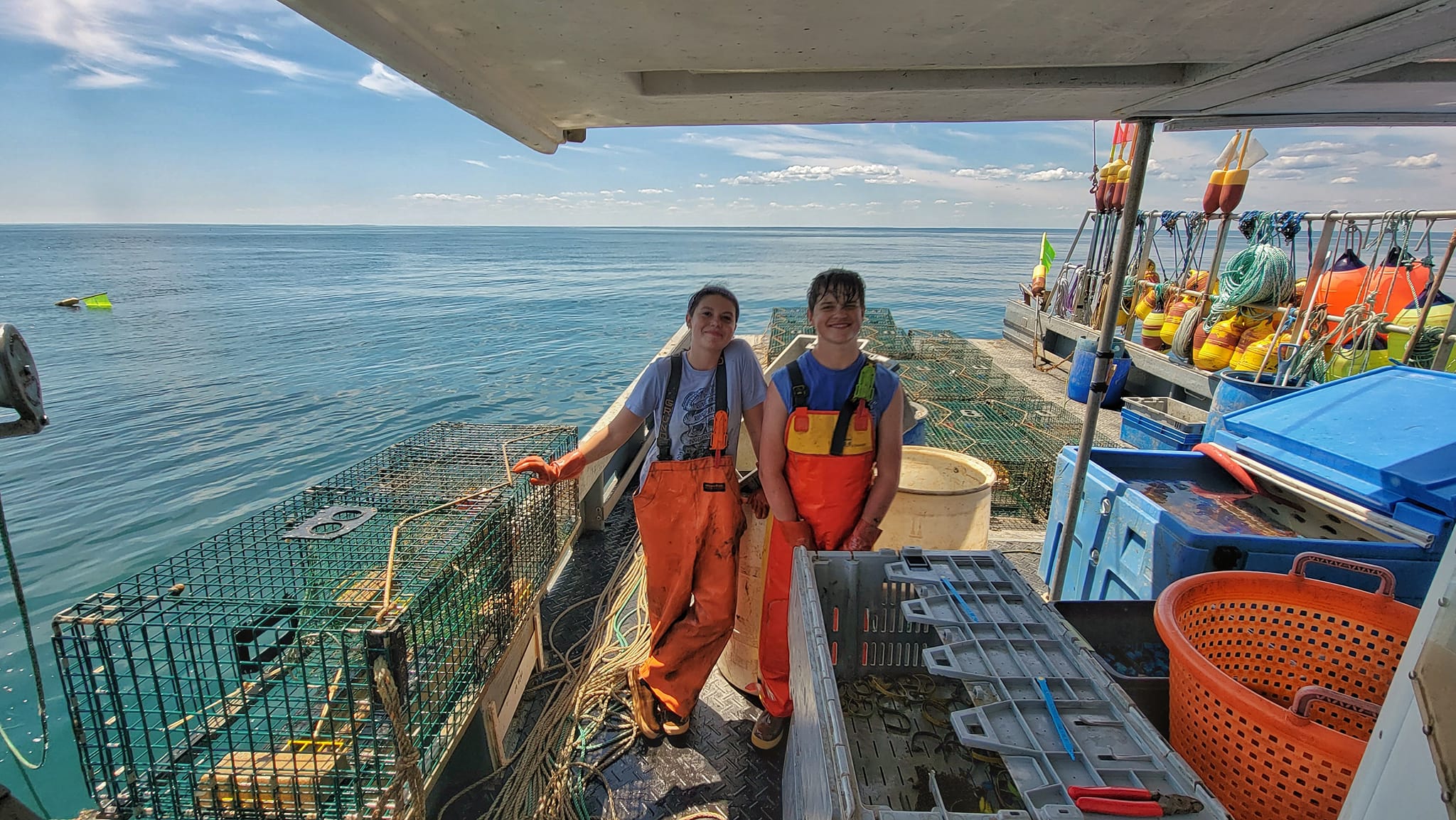
But William’s parents aren’t fishermen. He’s got it in his lineage—his grandfather fished, his mother had her student license through college and his dad sterned here and there—but neither of his hard-working parents now make their living on the sea. They both do their part to contribute to the health of our tiny island community, and he has surely learned so much from them.
Williams’s essay made me think that this love for the sea and for pulling a living from it, doesn’t necessarily always come directly from our parents, or even through a bloodline at all. The carefully written words of William, a quiet, tall, reserved 18-year-old, prove there’s more to this work than work, and there are more pathways to it than from parent to child. He writes:
“Tommy taught me to appreciate the camaraderie of our crew and the bonds forged through shared labor. With each passing day, I grew more aware of the legacy I was stepping into, feeling the weight of responsibility not just for myself, but for the respect of the craft and those who came before me. Under his guidance, I was not just becoming a better lobsterman; I was learning to honor the very heart of this way of life”.
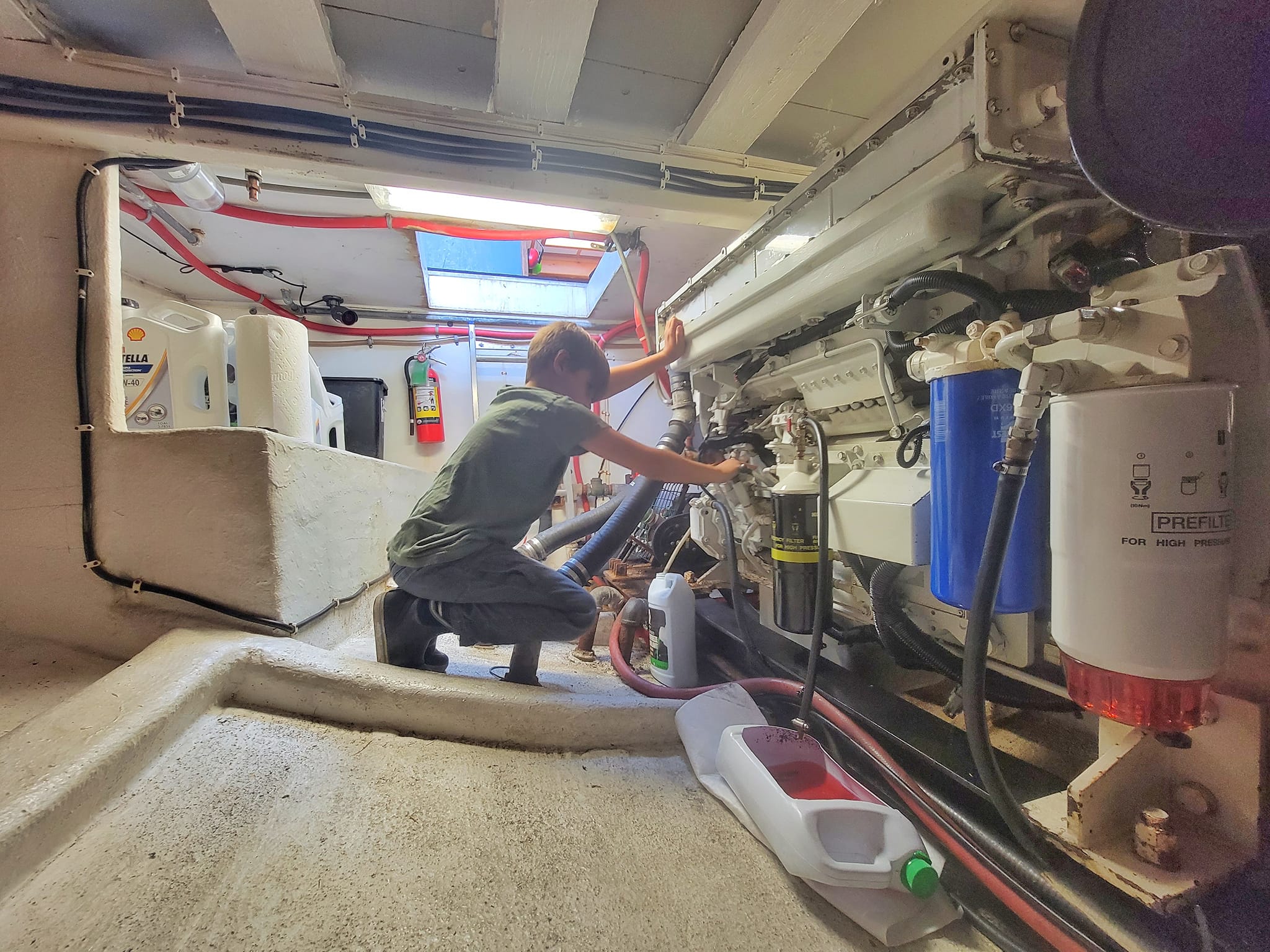
Yes, you will also learn how to rig gear, how to pack lunches while stars still litter the sky, and how to swing traps without hurting your back. But you’ll also learn where the traps fish best in the summer and where to move them in the winter.
You’ll hear stories about the people who came before you, stories of survival and hardship, of mistakes and triumphs. You’ll learn how and why to use a measure and V-notch, beyond the regulations. You’ll learn that if a boat breaks down, even if you’re trying to get home for dinner, you stop and tow her in. You’ll learn how to swear and how to exaggerate and how to laugh off a bad day. You’ll learn to stop the boat to pick up floating trash and you’ll rescue trapped birds from inside the cabin. You’ll learn how to use the VHF to tell jokes, ask for help, sing to one another in memory of a fisherman lost.
This is how the magic of this life gets into blood and bones.
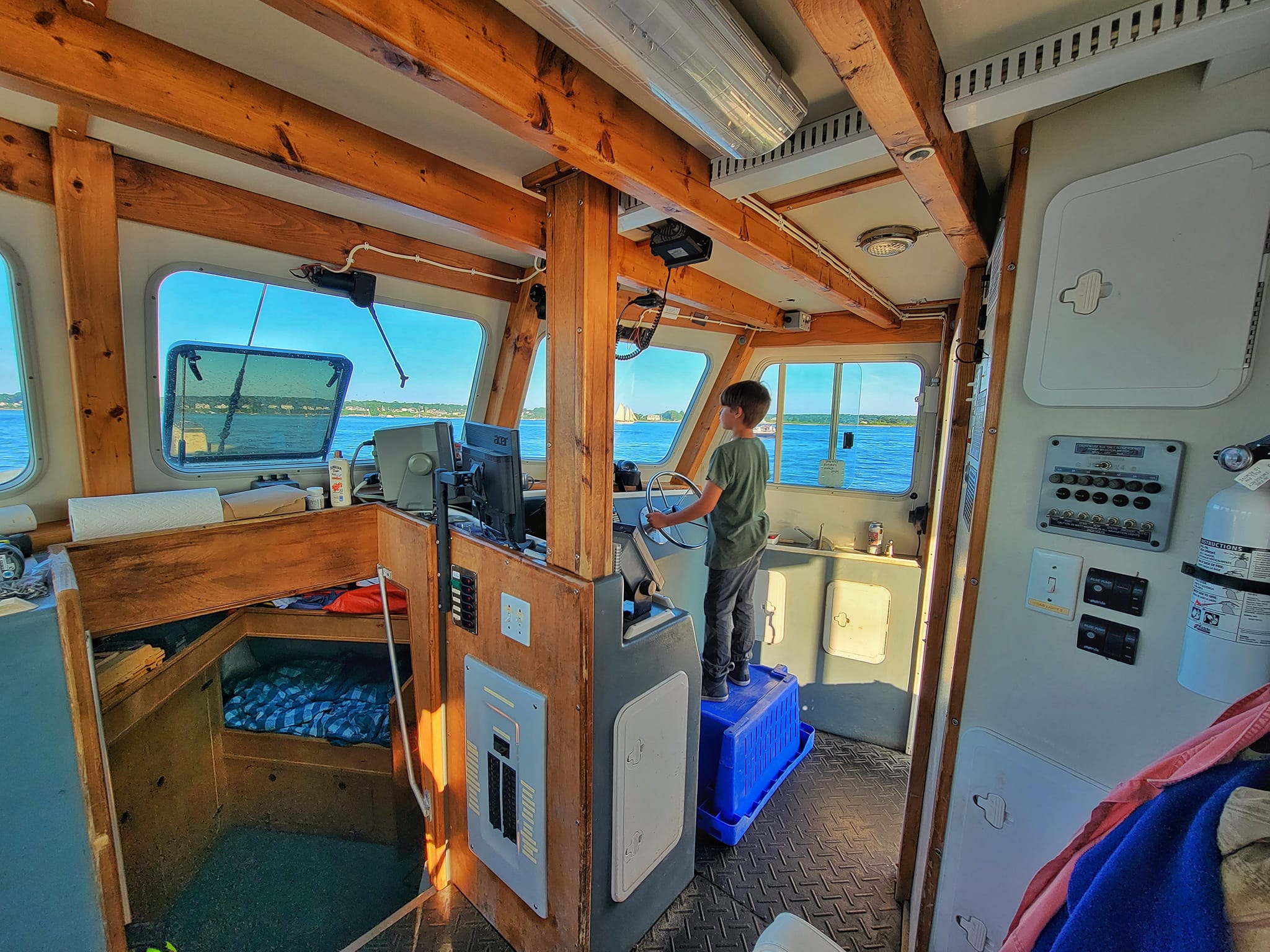
Young men without an idea of what they want to be when they grow up can spend a summer on a lobster boat, and suddenly have a vision. Young women with no confidence discover they can do anything a boy can do. It doesn't matter that they didn’t grow up surrounded by bait and rope and traps in the yard. It doesn't matter if their parents work in an office, or grew up far from the ocean.
This industry is more than hard work and paying bills, though that is of course part of it. I don’t come from a fishing family myself, but I was lucky enough to marry into one 20 years ago. And even though that makes me a little bit of an outsider, even if it’s a welcome one, it also gives me a unique perspective on how much this industry has to teach.
Today, so many kids are wrapped up in social media and status, comparing themselves to others, that they often lose sight of the beauty and opportunity around them. But there are still those who are connected to the earth, who are learning how to manage a fishery and their own money, who love a sunrise and the sound of the waves on a lobster boat hull. You don’t have to come from a long line of fisherman to let the love for fishing seep into your blood, and once it does, it changes you from the inside out.
